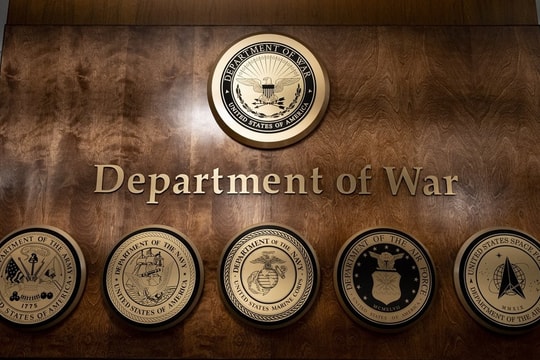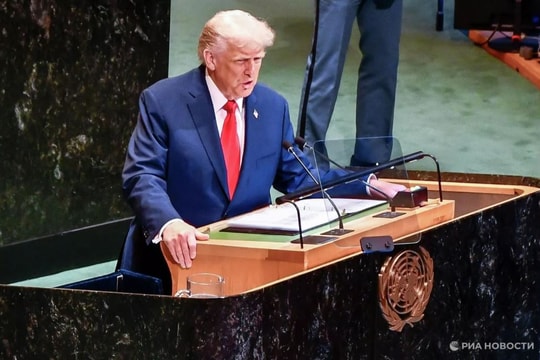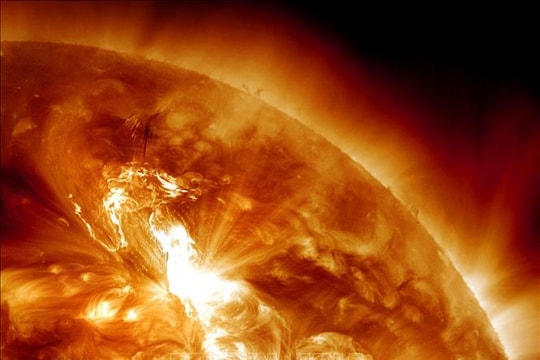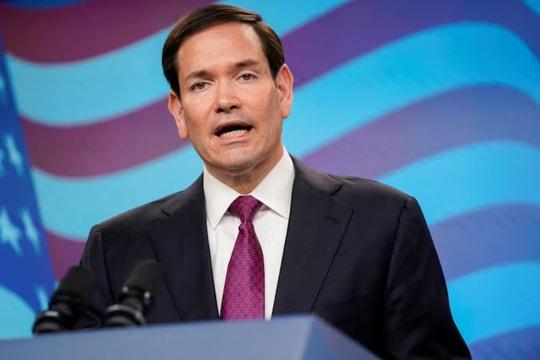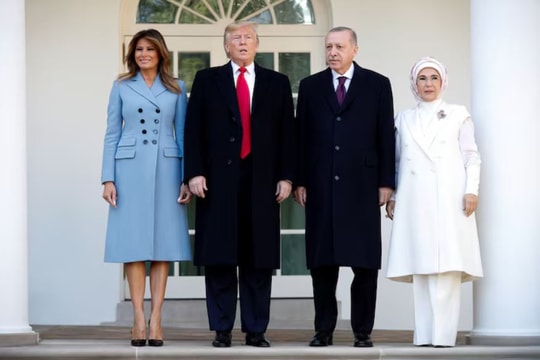January 3, the death of General Soleimani and US-Iran relations
As the clock ticks down to January 3, 2021 – a year after the death of General Soleimani – both the US and Iran are on high alert for the risk of a conflict.
US - Iran raise combat readiness level
The US and Iran have accused each other of escalating tensions in the Persian Gulf amid concerns of a possible conflict ahead of Iran's one-year anniversary of the US assassination of Quds Force commander General Soleimani and less than three weeks before President-elect Joe Biden takes office.
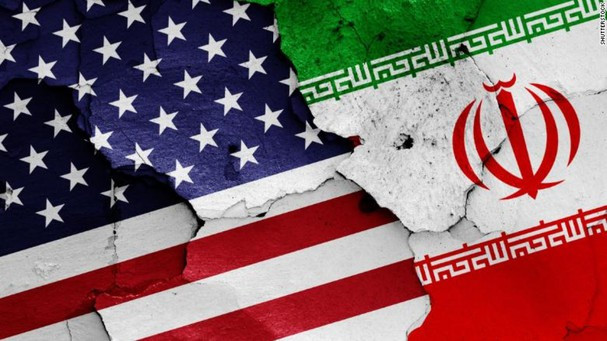 |
| Illustration: CNN |
Iran told the United Nations Security Council on December 31 to stop what it called "military adventurism" in the Gulf and the Sea of Oman, including sending nuclear bombers to the region. Tehran also said it did not want war but would defend itself if necessary.
Meanwhile, a US official with information on the latest intelligence confirmed to CNN on January 1, 2021 that some Iranian naval forces in the Gulf have increased their combat readiness in the past 48 hours, and said it was unclear whether the move was defensive or a sign of an attack on the US. However, the official said the US does not believe the Iranian naval move is simply a maritime exercise. Earlier this week, US defense officials said recent intelligence showed Iran was shipping several short-range ballistic missiles to Iraq.
The escalation of military action is also consistent with statements from Iranian officials. The head of Iran's elite Quds Force said on January 1 that the response to "American crimes" would come from "its own people." President Trump, who repeatedly weighed military options against Iran in November, tweeted last week that he would "hold Iran responsible" if any Americans were killed.
Israeli media quoted an Arabic-language article saying that unnamed US sources said that Israel and Saudi Arabia are lobbying President Trump to carry out airstrikes on Iran's nuclear sites before he leaves office.
The US-Iran “war clock” is ticking every hour
Threats, public messages and military moves have all increased in the days leading up to January 3, the day Iran commemorates the death of General Qasem Soleimani and when US officials fear a response from the Islamic Republic.
Meanwhile, some analysts in Washington predict that President Trump may launch a conflict against Iran to distract from his defeat in the recent election.
"I'm really concerned that President Trump might think about blaming President-elect Biden with a military campaign as he nears the end of his term," said Tom Nichols, an international relations expert who teaches at the US Naval War College.
Iranian Foreign Minister Javad Zarif also accused on December 31, 2020, that President Trump was creating a "pretext" for war.
All of this comes as Biden prepares to implement his policies after his January 20 inauguration, which would end Trump’s “maximum pressure” campaign against Iran, resume dialogue and return to the Iran nuclear deal – all steps strongly opposed by hard-line officials in the Trump administration.
"Iran is a real threat to US national security, especially during high-risk periods like the eve of the anniversary of the assassination of General Soleimani," said Sam Vinograd, a former official at the US National Security Council.
However, Vinograd observer commented: "I think Iran will have to consider any attack during this memorial because they do not want to cause trouble before Mr. Biden takes office and it seems that they want to restart nuclear negotiations to get sanctions lifted."
Last week, US Central Command said an attack on the International Zone in Baghdad, near the US Embassy, was “almost certainly carried out by an Iranian-backed militia group.” As the clock ticked down to January 3, Mr. Vinograd said: “There are many potential acts of aggression.”
Do the US and Iran really want war?
Soleimani's successor on January 1 reiterated the death of the former Quds Force commander, asserting that "those who participated in this assassination will not be safe on Earth. That's for sure." General Esmail Ghaani told the crowd gathered at Soleimani's memorial service: "What they have seen so far is only a part of the revenge and wait, they will see a fierce revenge. The place and time will be decided by the Resistance Front."
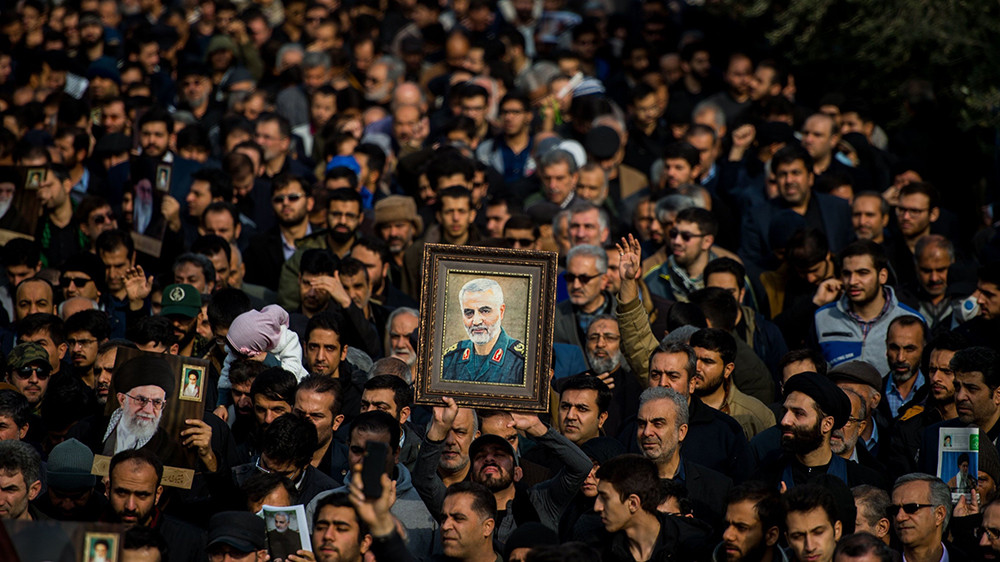 |
| Iranians remember General Soleimani after his assassination. Photo: New York Times |
Analyst Nichols told CNN that tensions with Iran escalated at a time when President Trump fired senior leaders at the Pentagon, replacing them with other officials who "won't really answer to anyone, except Donald Trump."
Mr. Nichols also cited complaints from Mr. Biden and his national security team that the Pentagon transition team did not give them enough information, including documents about the posture of U.S. forces abroad and the threats Washington faces.
“Because there's no clarity and because we have no way of knowing what the president is thinking, I think this raises some concerns,” said analyst Nichols.
Analyst Vinograd also raised another concern when he commented to CNN: "President Trump and members of his team are deliberately distorting intelligence information, including about Iran, to serve personal and political goals. So far, it is no longer impossible for President Trump to consider attacking Iran, and with less than 3 weeks left until the end of his term, Trump will probably want to make some kind of mark."
On December 31, 2020, Iran asked the UN Secretary-General to help ease tensions, while also asking the US to comply with international law and stop "causing instability" in a "volatile region" like the Persian Gulf.
Letter from Iran's Ambassador to the United Nationshas cited the US deployment of advanced weapons to the region. The US Department of Defense has sent nuclear-capable B-52 bombers to the region, after announcing a nuclear-powered ship would pass through the Gulf.
According to the Pentagon, the US currently has several warships in the Persian Gulf capable of launching Tomahawk missiles and has about 40,000 - 50,000 military personnel across the region, although many of them do not have a direct combat role.
The Iranian Ambassador's letter also said: "Although Iran does not seek war, our ability and determination to protect our people, security, sovereignty, unity and territorial integrity, along with our core interests or our ability to respond to any threats or forces against Iran, cannot be underestimated"./.

